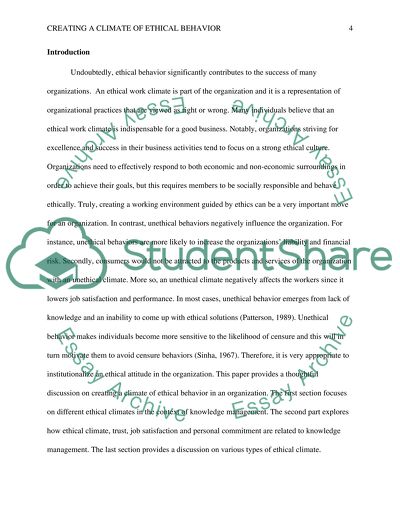Cite this document
(“Creating a Climate of Ethical Behavior at Workplace Research Paper”, n.d.)
Retrieved from https://studentshare.org/human-resources/1636978-creating-a-climate-of-ethical-behavior-at-workplace
Retrieved from https://studentshare.org/human-resources/1636978-creating-a-climate-of-ethical-behavior-at-workplace
(Creating a Climate of Ethical Behavior at Workplace Research Paper)
https://studentshare.org/human-resources/1636978-creating-a-climate-of-ethical-behavior-at-workplace.
https://studentshare.org/human-resources/1636978-creating-a-climate-of-ethical-behavior-at-workplace.
“Creating a Climate of Ethical Behavior at Workplace Research Paper”, n.d. https://studentshare.org/human-resources/1636978-creating-a-climate-of-ethical-behavior-at-workplace.


